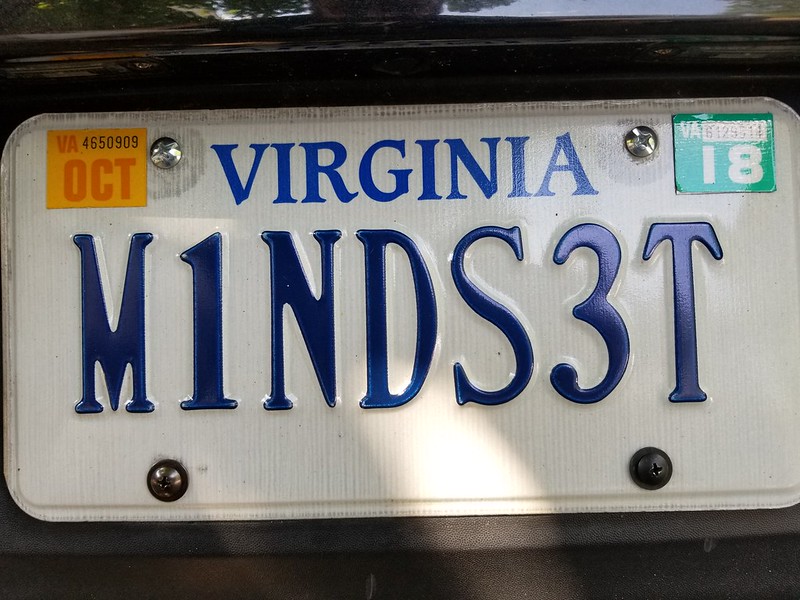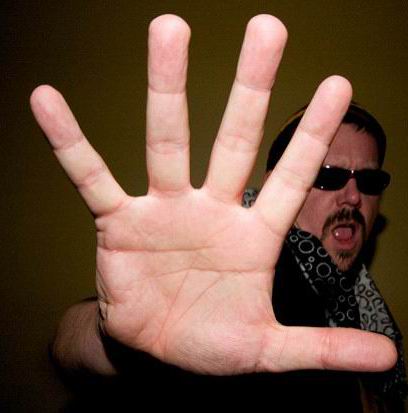Revised Common Lectionary Reflection, Sixth Sunday after Pentecost, Proper 10, Year A
July 12, 2020
Lessons: Isaiah 55:10-13; Psalm 65:(1-8), 9-13, Romans 8:1-11; Matthew 13:1-9, 18-23

Theme: God’s faithful and generous people know that setting one’s mind and heart on Jesus’ teachings is to be Spirit-fed and Christ-led. This mindset is what leads to life and peace.
Key Scripture: To set the mind on the flesh is death, but to set the mind on the Spirit is life and peace. – Romans 8:6
Are you part of the “in crowd”? I’m not talking about the hip, cool, bitchin’, sick, dope or whatever adjectives one might apply to an “esteemed” group of folx. No, I’m talking about the “in crowd” that our contemporary U.S. culture considers irrelevant, out-of-touch, and judgmental. Figured it out yet? If you said or thought “church,” you’re spot on. Whether you consider this observation about American Christianity to be true or whether it leaves you feeling a little defensive about your own brand of faith, credible studies report why “nones” and “dones” and young adults are skeptical or downright dismissive of organized religion.
The stories of the “nones” and “dones” may help us figure out how we need to change in order to be the “in crowd” the church is designed to be … the “in-Christ” crowd.

The reasons are many, including moving to college, feeling that church members are judgmental or hypocritical, don’t feel connected to the people in the congregation, disagree with the church’s stance on political/social issues, work responsibilities prevent attendance. In his book You Lost Me: Why Young Christians are Leaving Church and Rethinking Faith, David Kinnaman analyzes eight national studies and numerous interviews with teens, young adults, parents, youth pastors, and senior pastors. Kinnaman cites six overarching themes as reasons why about three out of five young Christians (59%) disconnect from church for an extended period or permanently after age 15. Some folks jokingly call it “graduating from church,” which is actually a pretty sad and somewhat damning commentary on how we currently “do” church.
The word choice of “do” church is deliberate because far too often our congregations fail to “be” church for a hurting world as we argue over all manner of cultural triggers, theological hangnails, and lament the nostalgic church of our youth. (Note: This perspective addresses churches swimming in the cultural soup of the day from a place of privilege and mainstream dominance. We would do well to listen to our siblings who are part of African descent, Latinx, and indigenous worshiping communities, as well as others, such as members of the LGBTQIA+ community who have long been excluded from and hurt by the church.)
We need a new mindset, and the global COVID-19 pandemic gives us just that: A perfect springboard to reset our faith practices and deeply and faithfully examine why so many congregations are shrinking in numbers/finances or moving toward painfully slow but inevitable closure. This is hard, holy work, but it is absolutely necessary if we want to live in Christ and share this best news ever with a hurting and chaotic world. How does your congregation’s mindset need to change? Does your own mindset need tweaking?
Paul lays it out pretty simply in this week’s epistle lesson (Romans 8:1-11): “To set the mind on flesh is death” and “those who are in the flesh cannot please God” and “Anyone who does not have the Spirit of Christ does not belong to him.” Ouch!
Conversely, Paul reminds us that setting our minds on Christ and the gift of the Holy Spirit leads to life and peace. When we are in the Spirit and the Spirit is in us, the ways of the world and the desires of our human nature become less and less important as we grow in faith and righteousness. The consequences of either choice, living in the flesh (world, culture) or living in the Spirit (fully committed to following Christ) are long term, eternal even. Or, as Paul puts it “If the Spirit of him who raised Jesus from the dead dwells in you, he who raised Christ from the dead will give life to your mortal bodies also through his Spirit that dwells in you” (Romans 8:11). The one thing that full-on radical discipleship (and that’s really the only kind Jesus advocated) will NOT get you is a front row seat in this culture’s “in” crowd. You’ll have to let go of some things—perhaps some erroneous beliefs, toxic ideologies, and outdated traditions and expectations.

Yep, we need a new mindset. When the sower Jesus teaches about in today’s gospel goes out to sow, we want to have our minds and heart prepared as good soil, developing a deep root system that connects us to the Creator and one another. We don’t want to lack understanding even if it means change (perhaps stepping off the well-beaten path that leads nowhere). We don’t want to have hearts as hard as stone so that the good news has no way to flourish, and we certainly don’t want to find ourselves in the thorns of this world’s cares and striving for superficial pleasures and unbridled wealth.
There will be many “in” crowds that come and go, but there is only one “in-Christ” crowd. No matter how we try to segment and divide the Body of Christ in this world, the church will prevail. It likely won’t look like we’ve been used to, and it may stretch our comfort zones to the max, but if we truly locate ourselves in Christ we have nothing to fear and eternity to gain.
Blessings on your faithful, fruitful, and challenging preaching and teaching. May the Spirit guide you into all wisdom, provide you with words, and give you courage. Thank you for all that you do in our current liminal space and time. To God be the glory.
In
Worship
Consider hymns this week like “I Love to Tell the Story” and
“Lord, Let My Heart be Good Soil.” Since most of us aren’t singing together,
consider having worshipers take turns reading the lines either via a
pre-recorded and edited video, or Zoom, or socially-distanced in person.
An important piece of this week’s gospel story is omitted, verses 10-17. Check it out as Eugene Peterson translates the passage in The Message. The disciples ask why Jesus tells these stories, and he answers:
“You’ve been given insight into God’s kingdom. You know how it works. Not everybody has this gift, this insight; it hasn’t been given to them. Whenever someone has a ready heart for this, the insights and understandings flow freely. But if there is no readiness, any trace of receptivity soon disappears. That’s why I tell stories: to create readiness, to nudge the people toward receptive insight. In their present state they can stare till doomsday and not see it, listen till they’re blue in the face and not get it.”
Spend some time talking about the stories of faith that have been formative for you. Invite others to share, too. You might lead with one of these quotes:
The “human mind is a story processor, not a logic processor.” — Jonathan Haidt, social psychologist and Professor of Ethical Leadership at New York University’s Stern School of Business and author of The Righteous Mind.
“The story — from Rumplestiltskin to War and Peace — is one of the basic tools invented by the human mind for the purpose of understanding. There have been great societies that did not use the wheel, but there have been no societies that did not tell stories.” — Ursula Le Guin, American fantasy and science fiction author
“God made man because He loves stories.” — Elie Wiesel, author and Nobel Peace Prize winner
With Youth
Invite youth to ponder Paul’s teaching in this week’s epistle lesson (Romans 8:1-11). What constitutes the “in” crowd in their setting? Why is it more difficult to align oneself with the “in-Christ” crowd? What challenges do they face? What are the upsides to being part of the “in-Christ” crowd?
If your youth group likes movies, you might consider showing a clip or two from one of the many teen movies that deals with acceptance, popularity, and choices. Three older films are The In Crowd (1988), Hairspray (1988, remake 2007), and Footloose (1984, remake 2011). I like to use films from different time periods so that there’s both some hilarity at the hairstyles and clothes but also a slight social disconnect that makes it easier to talk outside their current context.
With
Children
This week’s focus verse is Matthew 13:9 – “Let anyone with
ears listen!”
Have you ever had to say “Listen to me, please!” to be heard? Most of us have at one time or another. It doesn’t make you feel good when people won’t listen to what you have to say. Hopefully, having someone (or many people) not listen to you, will teach you about the importance of really listening.
In this week’s gospel lesson, Jesus is teaching the crowd in parables. He tells them to listen twice. Jesus wants people to listen and learn, to grow and have good lives that really matter. If they don’t listen, how can they understand? How can they learn?
We can all learn to be better listeners. (Invite the children to come up with some examples of good listening skills. You might prime the pump with a few suggestions such as “repeating back to the person you are listening to what you think you heard them say” or “don’t work on an answer or rebuttal until you’ve heard the other person out.”
Finish with a simple echo prayer and blessing.
Dear God (Dear God),
Thank you (Thank you) for being you (for being you). Thank you loving us (Thank you for loving us). Help us to listen to you (Help us to listen to you), so that we can share the good news (so that we can share the good news) of Jesus (of Jesus). Keep us from fear (Keep us from fear). Keep us hopeful. (Keep us hopeful). Make us helpful (Make us helpful). Give us peace (Give us peace.) Amen (Amen).
Weekly
Stewardship Bulletin Insert
Our Old Testament lesson (Isaiah 55:10-13) reminds us of
God’s faithfulness and purpose: “…so shall my word be that goes out from my
mouth; it shall not return to me empty, but it shall accomplish that which I
purpose, and succeed in the thing for which I sent it.” Your gifts of time,
talent, and treasure help us realize God’s divine will right here in our
community. Thank you for your continued gifts of time, talent, resources, and
prayer.
Stewardship
at Home
Do you need a new mindset? This week spend some time
tracking just how much time you spend in relationship with God. How does this
compare with the amount of time you spend, say, on social media, watching TV,
or shopping?
“For where your treasure is, there your heart will be also,” Jesus reminds us in Matthew 6:21. Is your relationship with the Christ your treasure? Or is it more of an afterthought or occasional commitment? What might you need to reset your mind and heart to live in Christ? Being part of the cultural in-crowd might be great for a while (however you define in-crowd), but it won’t save your life or help you grow in faith. Count the cost. Consider which “crowd” is the better choice for you.
2017 Reflection: https://www.stewardshipoflife.org/2017/07/a-rock-a-hard-place-and-good-soil/
2014 Reflection: https://www.stewardshipoflife.org/2014/07/word/
Images: Eli Christman, Bark, and Christian Bourdeau, Creative Commons usage license. Thanks!
Note: Reprint rights granted to congregations and other church organizations for local, nonprofit use. Just include this note: “Copyright (c) 2020, Rev. Sharron Blezard. Used by Permission.” Other uses, please inquire: thewritelife@hotmail.com.



Leave a Reply